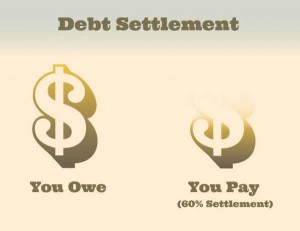 Debt settlement is one of the many options that you could take if you find yourself unable to pay off your debts.
Debt settlement is one of the many options that you could take if you find yourself unable to pay off your debts.
Debt settlement is a negotiation where your creditor allows you to pay lesser debt than what you owe. A debt settlement company can handle the negotiations for you or you can do it yourself.
There are things that you should do if you decide to apply for debt settlement:
- Get into negotiations before you are in default for 90 days
When you realize that you are likely to start struggling with your debt payments, research online on the best debt settlement companies available and start the process immediately.
When your debt is more than 120 days or 180 days old, it's referred to as a charge-off. When your debt is categorized as a charge-off, it will affect your credit for up to 7 years even if you pay the full debt after it's been charged off.
It's therefore better to act as soon as possible, and work with your creditors to discuss options.
- Consider the implications
Debt settlement has tax and credit score implications.
There are taxes that you will attract during settlement. If an amount more than $600 is going to be pardoned, it will attract taxes.
Once you have applied for debt settlement, it will go into your records. This means that if creditors lend you money in future, you will be viewed as a risk and your loans will cost too much to insure. It will be hard for you to get a loan.
- Prepare proof that you are not able to pay your loan
There are debtors who apply for debt settlement just because they want a reduction on their debt. The loaner will want to ascertain that you are not one of these individuals and that the only way they can get back their money is by getting into debt settlement negotiations with you.
You will be required to provide details of your income, any assets that you own and details of all your debts. Such details will help them determine whether you are indeed incapable of paying back what you owe.
- Only negotiate for an amount you can pay
Don't overpromise just to get a deal. If you know you cannot pay the stipulated amount, don't agree to finalize the agreement.
If you agree to pay a higher amount than you are comfortable with, it's likely that you will be unable to make the payments.
If you default in paying the debt settlement amounts, your debt will be referred to a debt collection agency.
- Get the payment status updated
When you finalize the debt payment, make sure it shows as fully paid and that this information has been recorded in your credit report.
Your loaner might fail to notify the credit bureau that your loan has been fully paid. It's up to you to follow up; otherwise your record will show that your loan is still delinquent.







